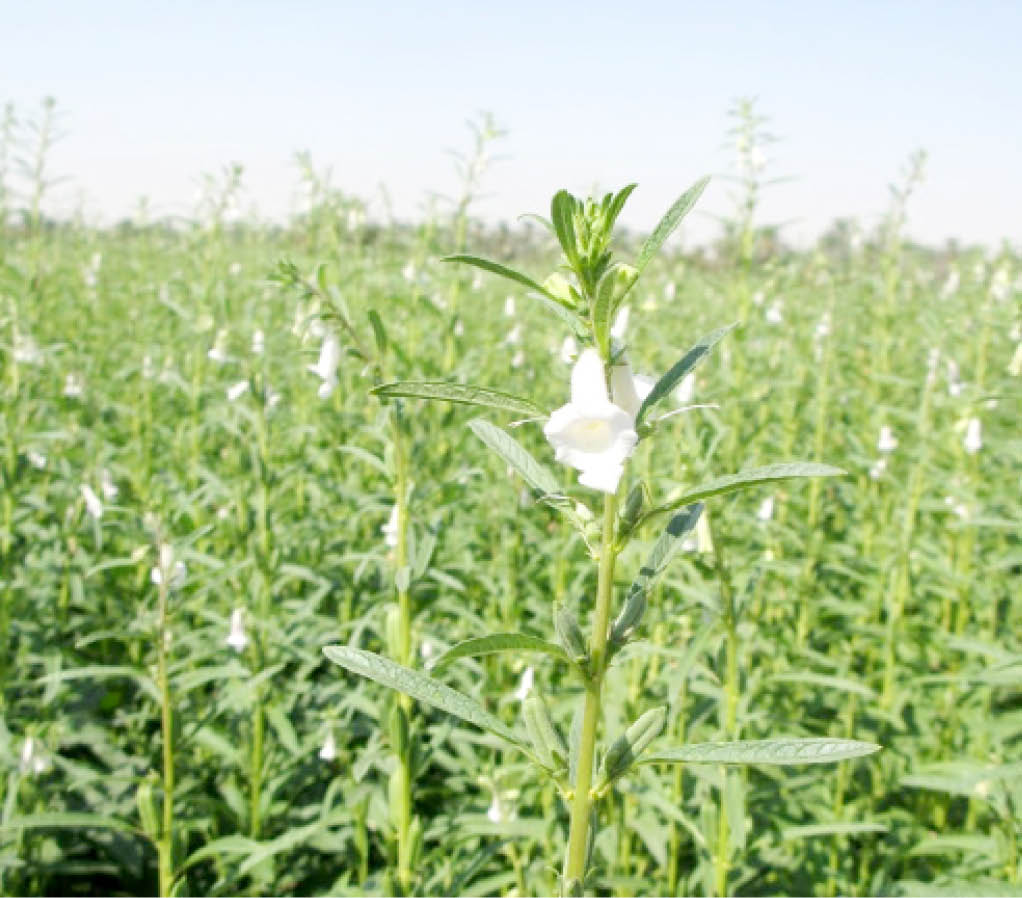Plans seed processing factory in FCT
The federal government has asked sesame farmers in 26 states in the country to step up production to exploit opportunities.
Adamawa, Bauchi, Benue, Borno, Gombe, Jigawa, Kaduna, Kano, Katsina, Kebbi, Kogi, Nassarawa, Niger, Plateau, Sokoto, Taraba, Yobe and the Federal Capital Terriritory (FCT) have been identified among the states in the forefront of the programme.
A research document on challenges to sesame production in Nigeria, by the Raw Material Research and Development Council (RMRDC), seen by our reporter, shows that Jigawa has the highest area of production in the country, followed by Benue State.
Experts believe that Nigeria can produce up to 1.5million tonnes per annum.
The document, signed by the director-general of the Council, Professor Hussaini D. Ibrahim, listed the major challenge to sesame production to include lack of capacity to extract the sesame oil at industrial scale, as most sesame farmers are only able to harvest, thresh, clean and put in bags for sale.
Production statistics show that 60 to 70 per cent of sesame seed produced in the country is exported.
As a result, the document added that the industrial processing and utilisation of sesame had not been fully developed in the country, even though the product is locally processed and utilised in various forms in the states where the crop is cultivated.
Principal among the products are kantunridi and kununridi. At the local level, the oil is extracted from the seed and the cake is made into kulikuli, which, together with the leaves, is used to prepare local soup, known as miyartaushe.
Experts believe that for Nigeria to maximise its potential, it has to first increase production, and secondly set up dehauling plants for value-addition, and thirdly, to set up a sesame oil processing plant.
Why FG picked interest in sesame value-chain development
According to the document, the global sesame seeds market was valued at USD6.67 billion in 2019. It is anticipated to reach USD7.56billion by 2027, growing at a Compound Annual Growth Rate (CAGR) of 1.5 per cent during the period.
Thus, the federal government, through the RMRDC, is stepping up efforts to promote increased sesame seed production in the growing states.
The Council, in collaboration with the National Cereal Research Institute (NCRI), Badeggi, Niger State, boosted the production of sesame through the provision of improved sesame variety (2 tonnes of kenana, 4 from Sudan) to Sasakawa Global 2000 and sesame seed associations of Nasarawa, Niger, Kaduna, Kebbi and Jigawa states.
Sesame seed production was also promoted in the Abaji Area Council of the FCT with the distribution of 2.5 tonnes of improved variety.
To promote value addition to sesame seed, the Council has established a processing plant at the Technology Incubation Centre, Agege, Lagos, for oil and cake production. Establishment of the plant catalysed the establishment of other sesame seed processing plants across the country.
Also, the Council, in partnership with the Dantata Group of Companies, is establishing a sesame seed processing factory at the Abaji Area Council of the FCT. The processing factory would comprise one tonne/hour seed dehaulling plant, 8,000 tonnes/annum multi-purpose grains cleaning machine, 4.5 tonnes/hour mini-sesame seed oil extracting machine and 100 tonnes/day sesame seed oil refinery
Also, in order to improve sesame seed quality, reduce processing time and increase output, local utilisation and export, the Council deployed multi grains thresher and winnowing machines to NagariRidi Cooperative Society, Dakin Gari, Kebbi State.
The multiple grains thresher has the capacity of threshing 1.5 tonnes of grains (sesame, sorghum, millet, maize, groundnut, beans) per hour, while the winnowing machine has the capacity to process 500 kg of grains per hour.
The federal government, through the Council, is set to collaborate with willing investors to use sesame seed development as a yardstick to foster the post COVID-19 era industrial development agenda in Nigeria.

 Join Daily Trust WhatsApp Community For Quick Access To News and Happenings Around You.
Join Daily Trust WhatsApp Community For Quick Access To News and Happenings Around You.


